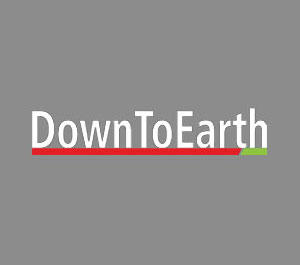The Environment Health Bulletin - January, 2012
 Food safety and Toxins Unit's quarterly newsletter
January, 2012
|
||||||||||||||||||||||||||||||||||||||||||||||||||||||||||||||||||||||||||||||||||||||||||||||||||||||||||||||
 Dear friends, Dear friends,Last quarter was eventful, to say the least. We had some good news, some bad ones and importantly an intrigue to scuttle a very important bill. Many of you will remember the heroic fight that the people of Plachimada, a small panchayat in Palakkad district of Kerala fought to safeguard their groundwater and environment against the factory of Hindustan Coca Cola. Because of their efforts, the factory had to ultimately shut shop, but the question of compensating the victims of pollution still remained. The Kerala assembly last year passed Plachimada Tribunal Bill to assess the damage and to make Hindustan Coca Cola pay compensation to the victims. The bill today has got mired into a turf war between the state government and the Union Ministry of Environment and Ministry of Home. Both these ministries have not given their go-ahead for the President of India to give assent to the bill. Meanwhile, Coca Cola is working behind closed doors and sending legal opinion to the Ministry of Home challenging the power of the state assembly to pass such legislation. There is an all out effort in Delhi to kill this Bill. Why is this bill important? We believe this bill is an important first step to hold businesses accountable for environment and social damages. This bill is important also because though we have processes and institutions at the national level, they have miserably failed to safeguard the interests of the people and the environment. We therefore need institutional mechanism at the state/local level that will quickly identify problems and rectify them. Considering the importance of this issue for the future environmental governance in the country, we have featured it as the lead story in the newsletter. The newsletter also features the ban on the shipping of hazardous wastes from developed to the developing countries. The ban is good news for the civil society in India, which for a long time has been demanding this ban. Predictably, the Ban amendment under the Basel convention was opposed tooth and nail by the developed countries especially the EU, Japan and the US, but ultimately the developing countries prevailed and 178 countries, without exceptions, agreed upon the ban. Last month brought to the fore the big problem of food adulteration in the country. First there was the case of poisoning fishes in the Karala river in West Bengal with Thiodan (another name for endosulfan) and the latest is the Food Safety and Standards Authority of India’s (FSSAI) report on milk adulteration – their first comprehensive report on food safety after being in existence for the last 6 years. The study finds 70 per cent of the milk is adulterated - with all kinds of things from detergents (found in 14 per cent of the samples) to starch, urea and formalin. There is nothing new in the report as adulteration of milk has been reported from time to time. But coming from the apex food regulator one can only hope that some stern action will now take place. The newsletter has many interesting stories including the falling pesticide contamination of food in the EU and the refusal of the US Food and Drug Administration to ban antibiotics use in food animals. Also of interest to you would be the Ministry of Environment's report on the health impacts of electro magnetic radiations from mobile towers and its proposal to declare it a pollutant. As always, we are eager to have your advice and comment on the newsletter. |
||||||||||||||||||||||||||||||||||||||||||||||||||||||||||||||||||||||||||||||||||||||||||||||||||||||||||||||
| -Chandra Bhushan | ||||||||||||||||||||||||||||||||||||||||||||||||||||||||||||||||||||||||||||||||||||||||||||||||||||||||||||||
|
||||||||||||||||||||||||||||||||||||||||||||||||||||||||||||||||||||||||||||||||||||||||||||||||||||||||||||||
|
||||||||||||||||||||||||||||||||||||||||||||||||||||||||||||||||||||||||||||||||||||||||||||||||||||||||||||||
 |
||||||||||||||||||||||||||||||||||||||||||||||||||||||||||||||||||||||||||||||||||||||||||||||||||||||||||||||
 |
||||||||||||||||||||||||||||||||||||||||||||||||||||||||||||||||||||||||||||||||||||||||||||||||||||||||||||||
| Centre for Science and Environment41, Tughlakabad Institutional Area, New Delhi. India - 110062 | Tel: +91-11 29955124, 29956110, 40616000 Fax: +91-11 29955879 | E-mail: cse@cseindia.org | ||||||||||||||||||||||||||||||||||||||||||||||||||||||||||||||||||||||||||||||||||||||||||||||||||||||||||||||
Story
Newsletter
Down to Earth

November 24, 2017
Kerala's Pathanamthitta district has highest number of diabetics

November 24, 2017


















Share this article